Scientific tips for memorising words from Quad lingual Steemer - No more frustration on French, Spanish or any language!
Hello! This is Brandon from Seoul, South Korea.
I am here to share my know-how to memorise foreign language words which I have practised for more than 10 years.
1. I am a quad-lingual speaking Korean as native, English, Chinese and Thai.
I am sure everybody has bad memory in school days. It is memorising foreign language words!
No matter which language you practised, somebody spent quite boring hours memorizing French or Spanish words. In Korea, I still remember that in every English class, I wrote down on the note 50 times for the words that I missed in a test. Having confidence in myself that I memorised every word, but I coundn't come up with any words a couple of days later!!!
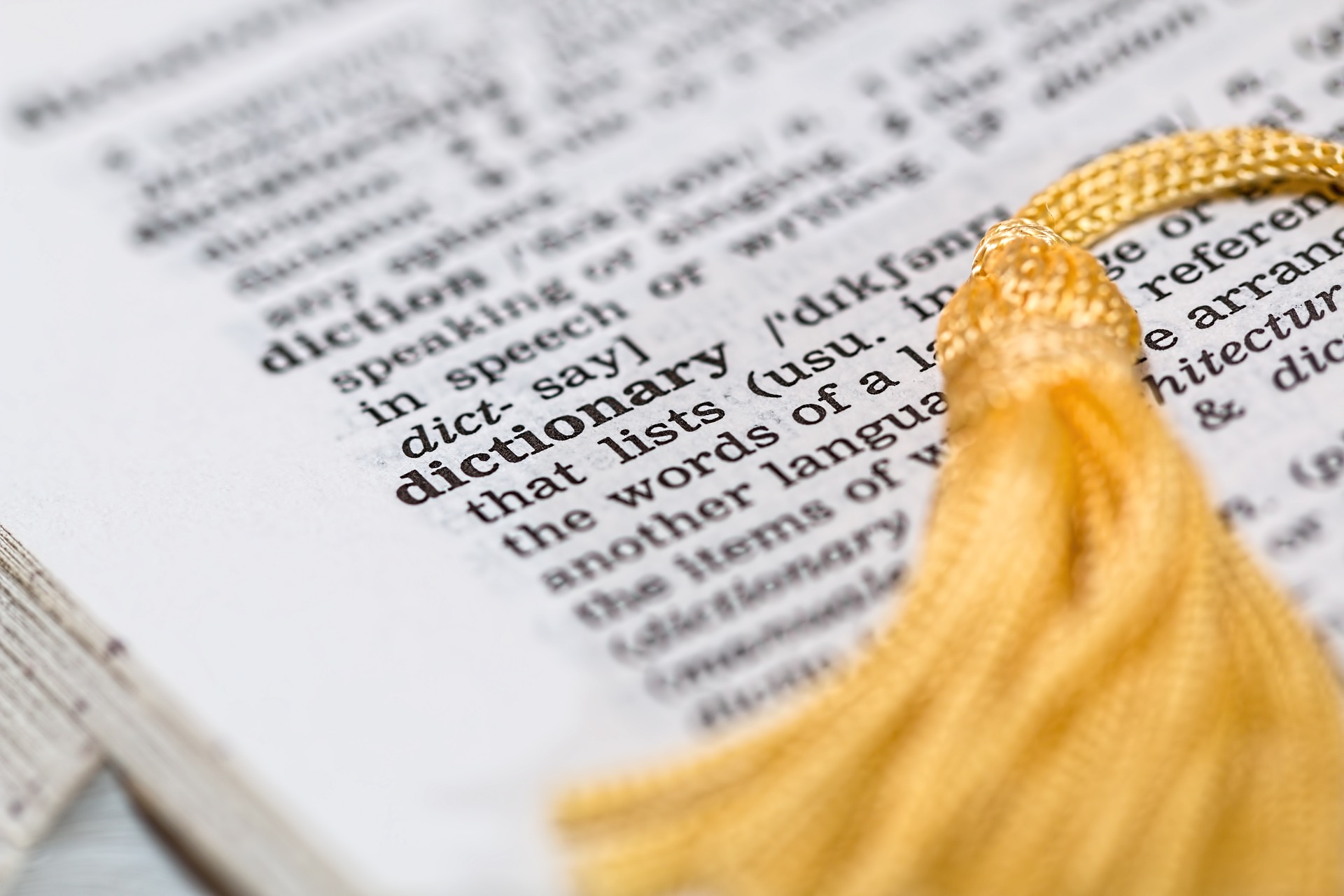
It was when I was studying important Chinese test called HSK and GMAT There were too many academic words which are quite rare in daily life. But when answering GMAT, I think that the possibility of taking an incorrect answer is at least twice higher than that of any other test because of one crucial word.
For this reason, so many people will get irritated with the word in learning foreign languages, which would lead to the conclusion that “I hate learning foreign languages”
2. Why is it difficult?

Why is it so hard to memorise words while we try our best?
I think ‘the method’ to memorise words is absolute.
Our brain is designed to accept information that we perceive. Then The information will be kept in and withdrawn from our brains when in the situation, which is called the process ‘short-term memory - long-term memory – withdrawal’ For example, let me explain my know-how in a Spanish word.
If you see a Spanish word ‘manzana’, you will recognize the word first and Manzana will be kept in your brain. After then, when you have to come up with the word ‘manzana’, by the external stimulus or spontaneous reasons, you have to take the word ‘manzana’ out of your brain.
Memorising
When new information comes into you, you will memorise the information for a fraction of a second. For example, you require only a second to memorize the authentication number on your mobile. But you will see it totally evaporates from your brain within 30 seconds! So this is called ‘sensory memory’ and only a few short-term memories related to our personal issues will be moved to ‘short-term memory’.
short term memory will last for approximately 20 seconds. And our brain goes processing to repeat short-term memory, which is called ‘rehearsal’. The information after rehearsal will be moved to our long-term memories. Surprisingly, it is said that long-term memory keeps infinite information permanently. After then, when it comes to the moment that demands the information, it should be loaded from long-term memory. Unfortunately, our brain which stores too much of information will see difficulty locating demanded information out of uncountable other information. It sounds like finding a 1 kbp file from 100TB in a short time.
Then let’s get back to the point. How can we make use of this process to memorise words?
We should keep words in long-term memory by effective rehearsal process and train ourselves to load the information immediately when required.
3. The method and function to memorise the word
As mentioned above, we can get to the conclusion that well memorise to well load. And this is my own tip to share with you.
- Fold the A4 paper lengthwise into quarters. Let me name every zone ‘1,2,3,4’
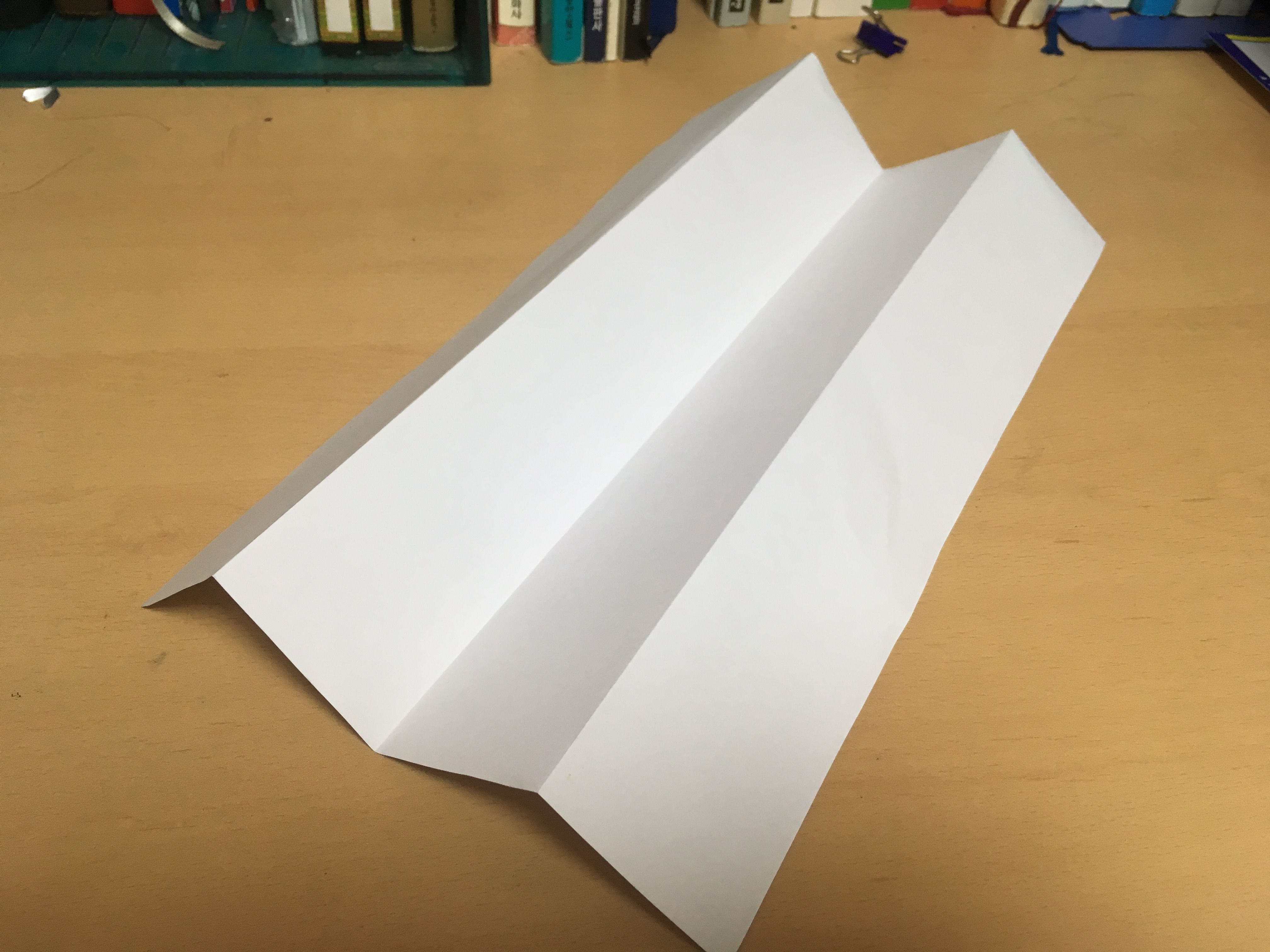
2. First, write a word in zone 1.
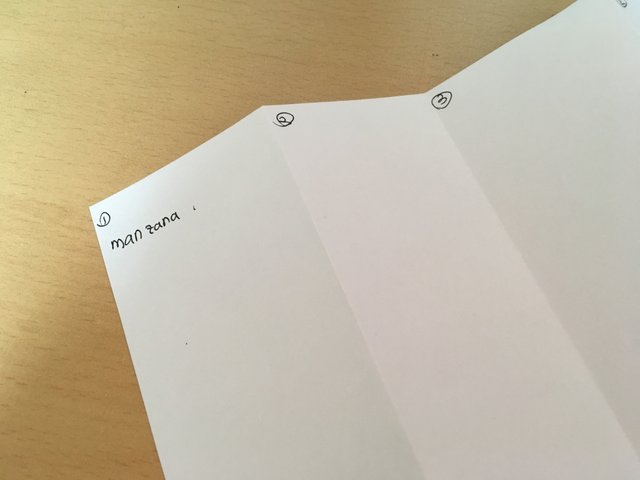
3. Next, write meanings in zone 2. And please make sure to imagine the word at the same time.
You should imagine the sweet red fruit, and when writing ‘correr’ you must imagine yourself panting to rush to somewhere. This process is called ‘Elaborative Rehearsal’ to move short-term memory to long-term memory. By Elaborative Rehearsal, you will match new information ‘manzana’ with the conventional image on sweet red fruit, which will help you to accept the new information as information already stored in your long-term memory.
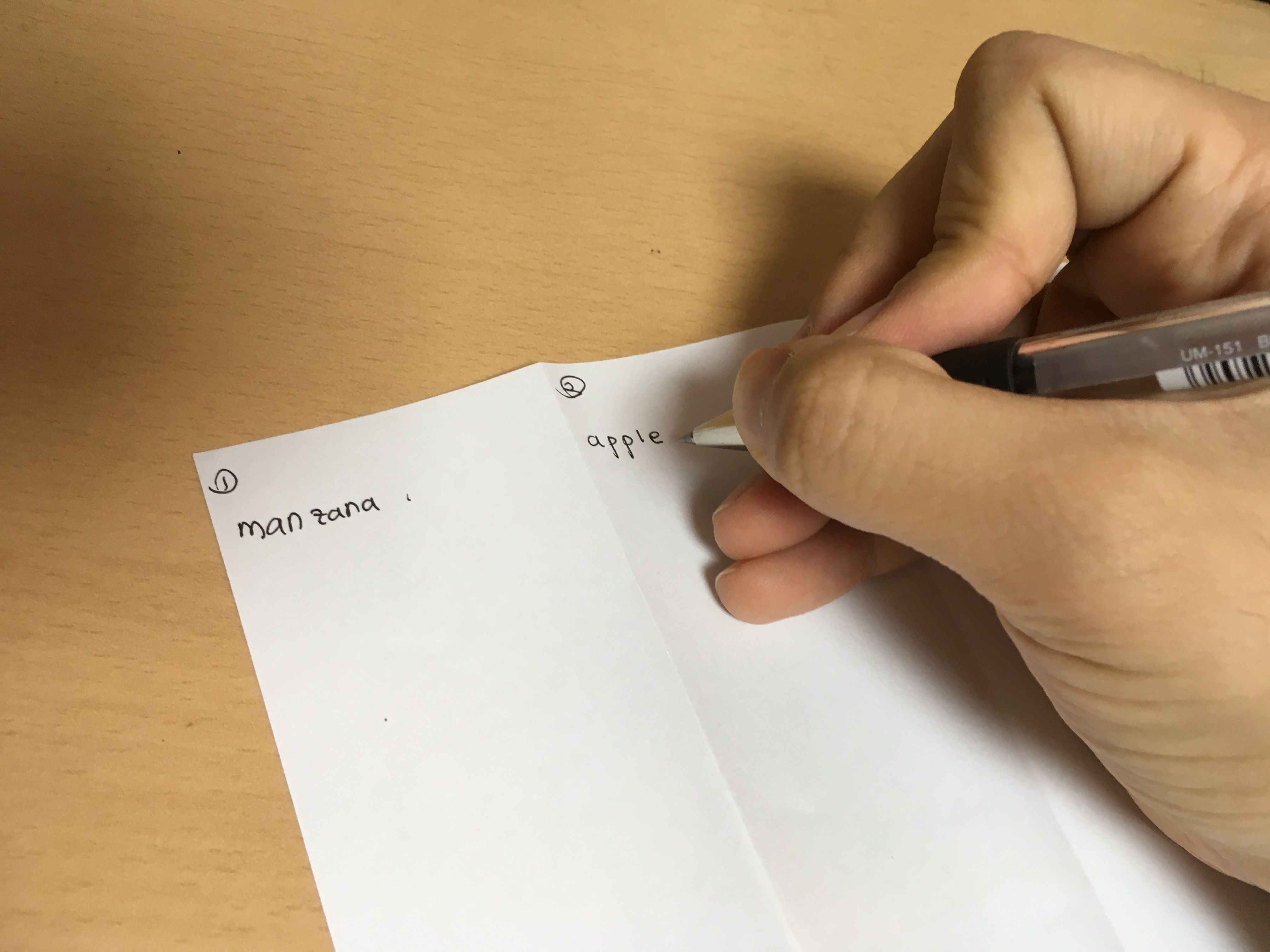
4. When you have finished writing in zones 1 and 2, make sure to have the image in your mind and pronounce the word once. As you write on the paper, you will store information in your long-term memory by repeating rehearsal such as giving stimuli with your hands first, second with your mouth, and third with images.
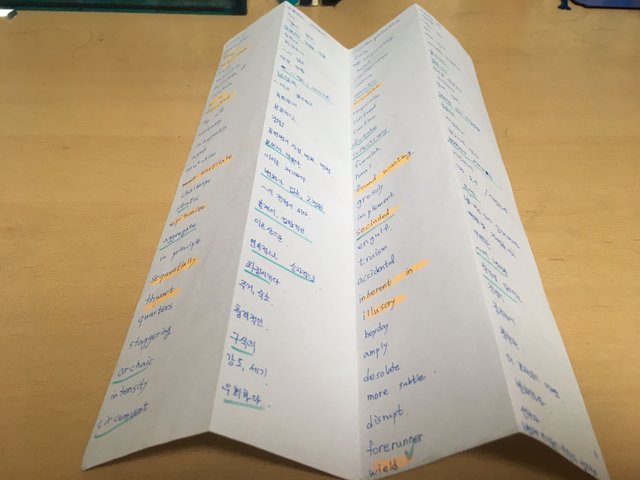
5. Please fill up the A4 paper using the procedure above.
6. Fold the paper to make only zone 1 visible. Try your best to take the meaning out of the memory. It is quite important to recall the image related to the word. You must recall the image of red sweet fruit rather than the word ‘mazana’.
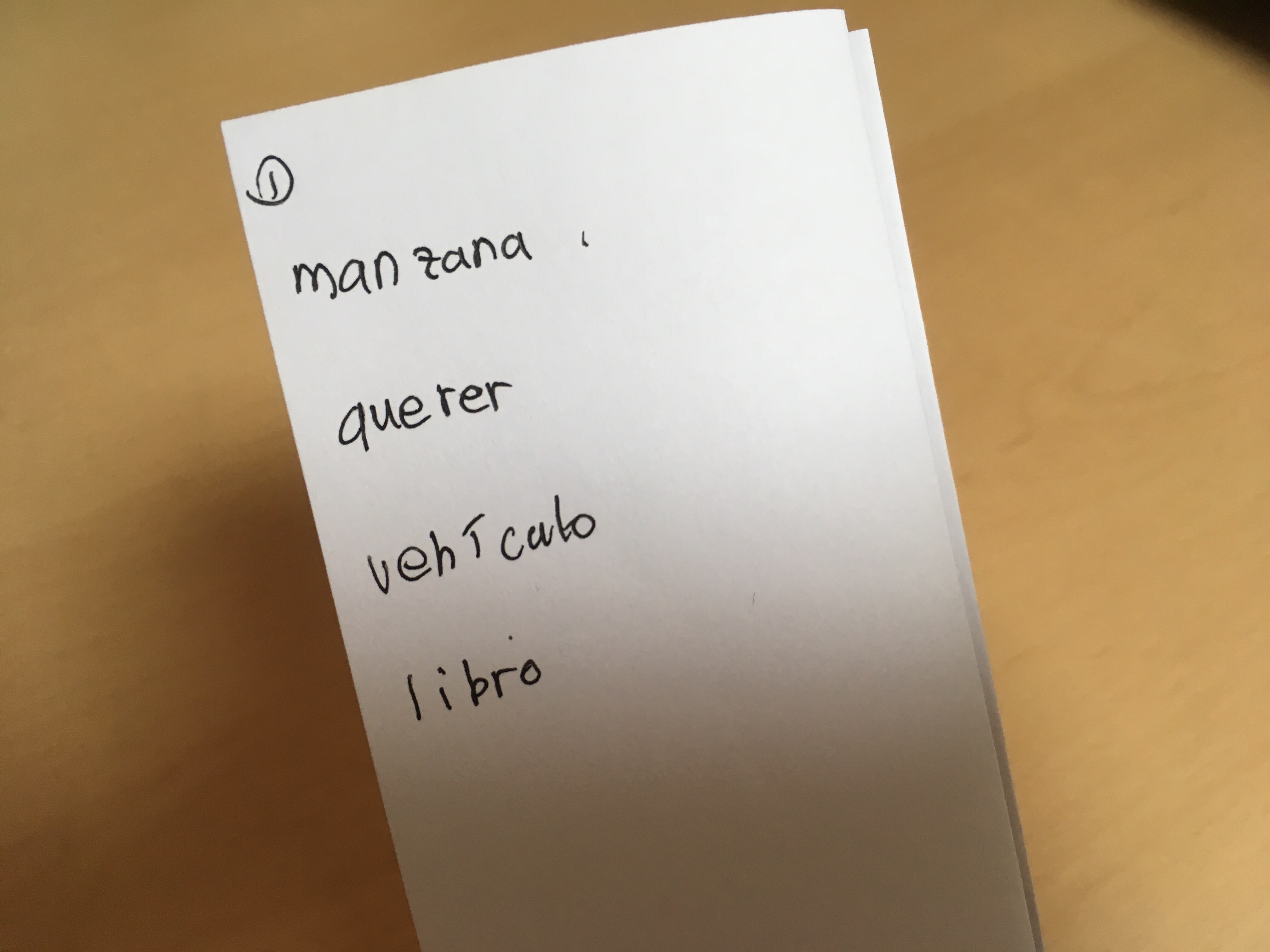
7. Finishing zone 1, repeat the same procedure on zone 2. So you are now carving the word on your brain in this way.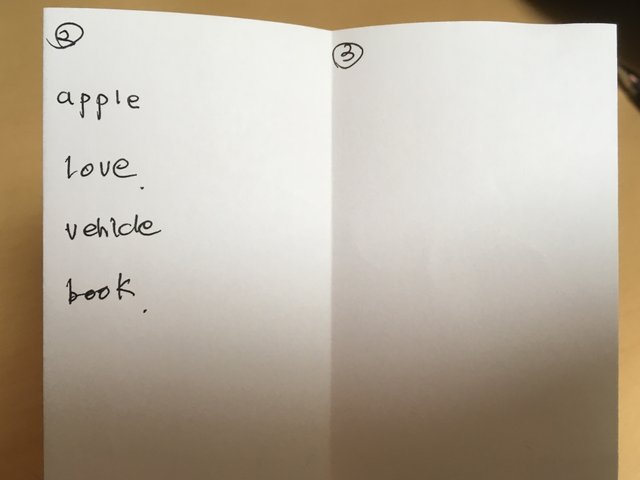
8. And I do it over and over again following 7 and 8. Make sure to repeat the procedure till all words get into your long-term memory. Don’t forget It would take a few days.
Tip
Repeating rehearsal procedure is quite effective while on public transportations. A little amount of noise and vibration raise concentration and you can use your time more efficiently.

4. Advantages of this learning
This method can be applied to any language you want to practice. The language is just a little different in the way of expression, but the core is to express how you feel inside. This is the sample how I practised Thai in the same method.
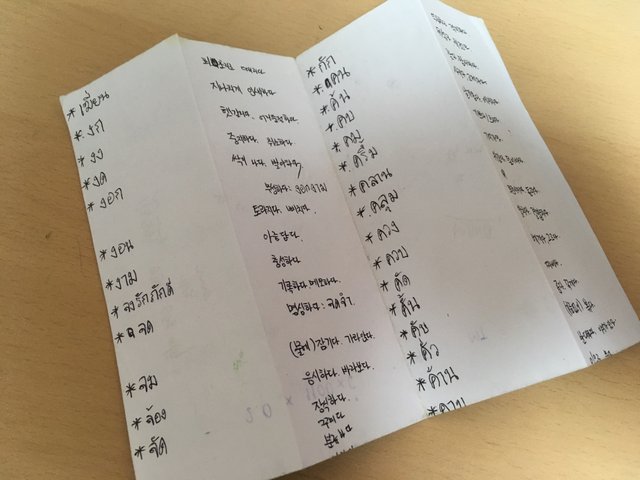
And by following this way, you can practise not only passive language activity(listening & reading) but also active language activity(speaking and writing). The passive language activity is to recall appropriate words from the brain based on the clue offered. But the active language activity is to recall the words without any clue, which demands a higher degree of difficulty. If you practice words by the method mentioned above, you can also speak and write better than others.
I hope my tips can help every steemit user who wants to practise foreign languages efficiently in a short time.
Thank you
This original contents belongs to https://steemit.com/kr/@brandonlee88/4-900-100
Awesome girlfriend summoning jutsu! @skycae
Thank you for your reply!
As a english speaker i have a hard time memorizing korean hangol - thank you for sharing the tips that i can use right away!
My pleasure! hope you can practise Korean easily and efficiently with my tips!